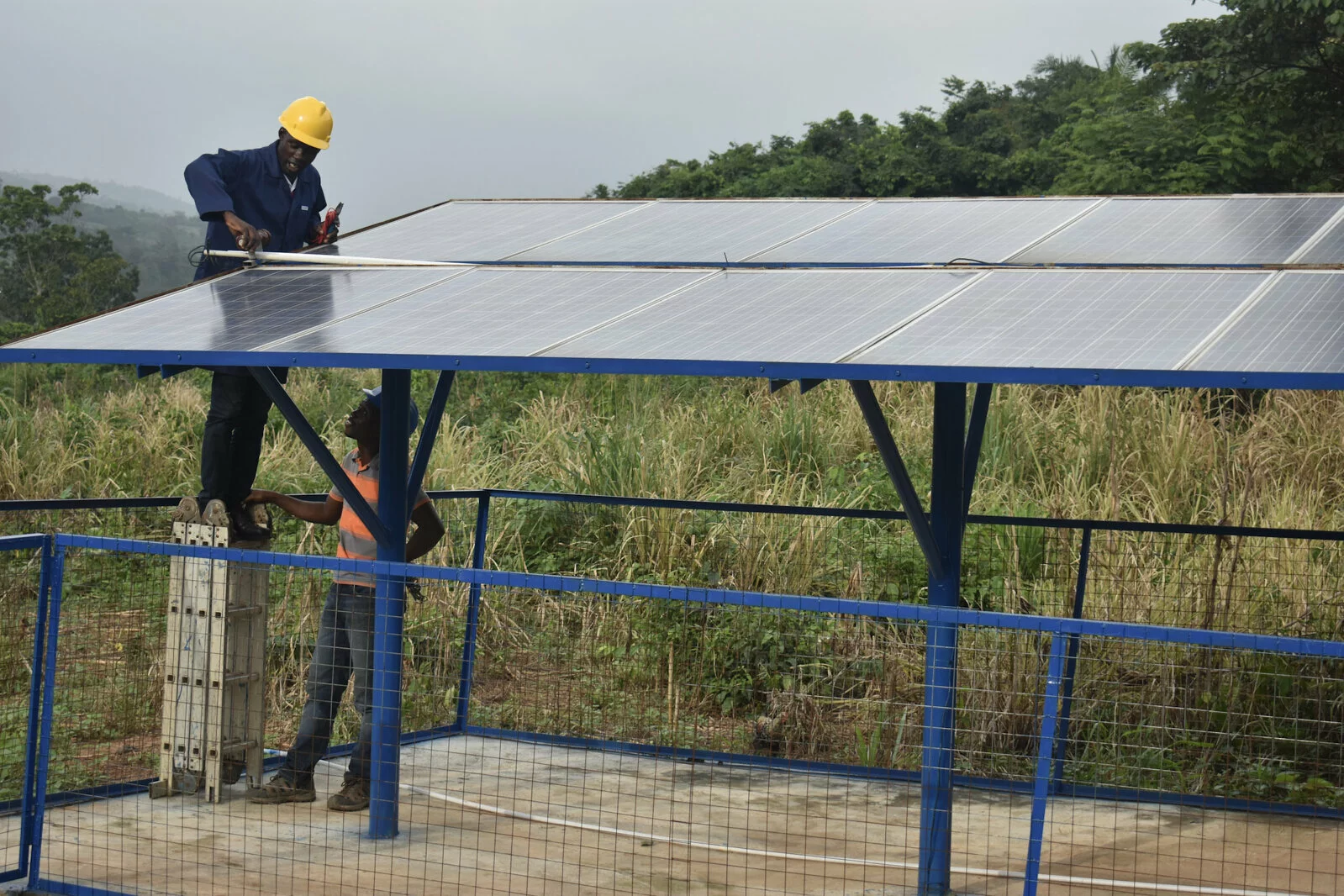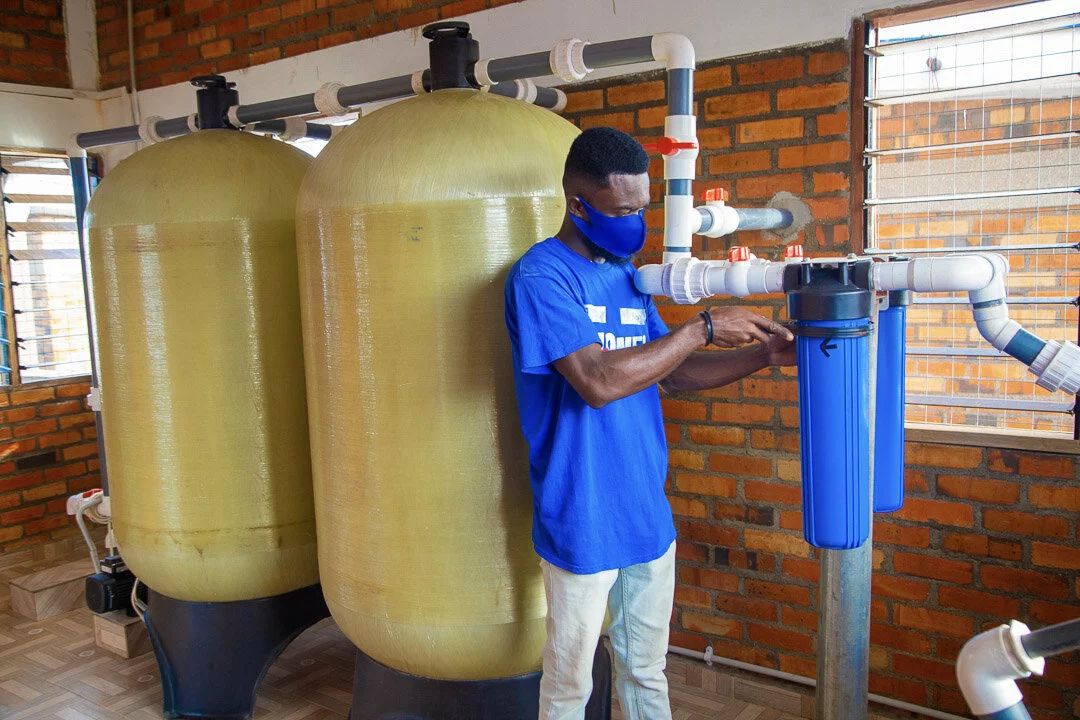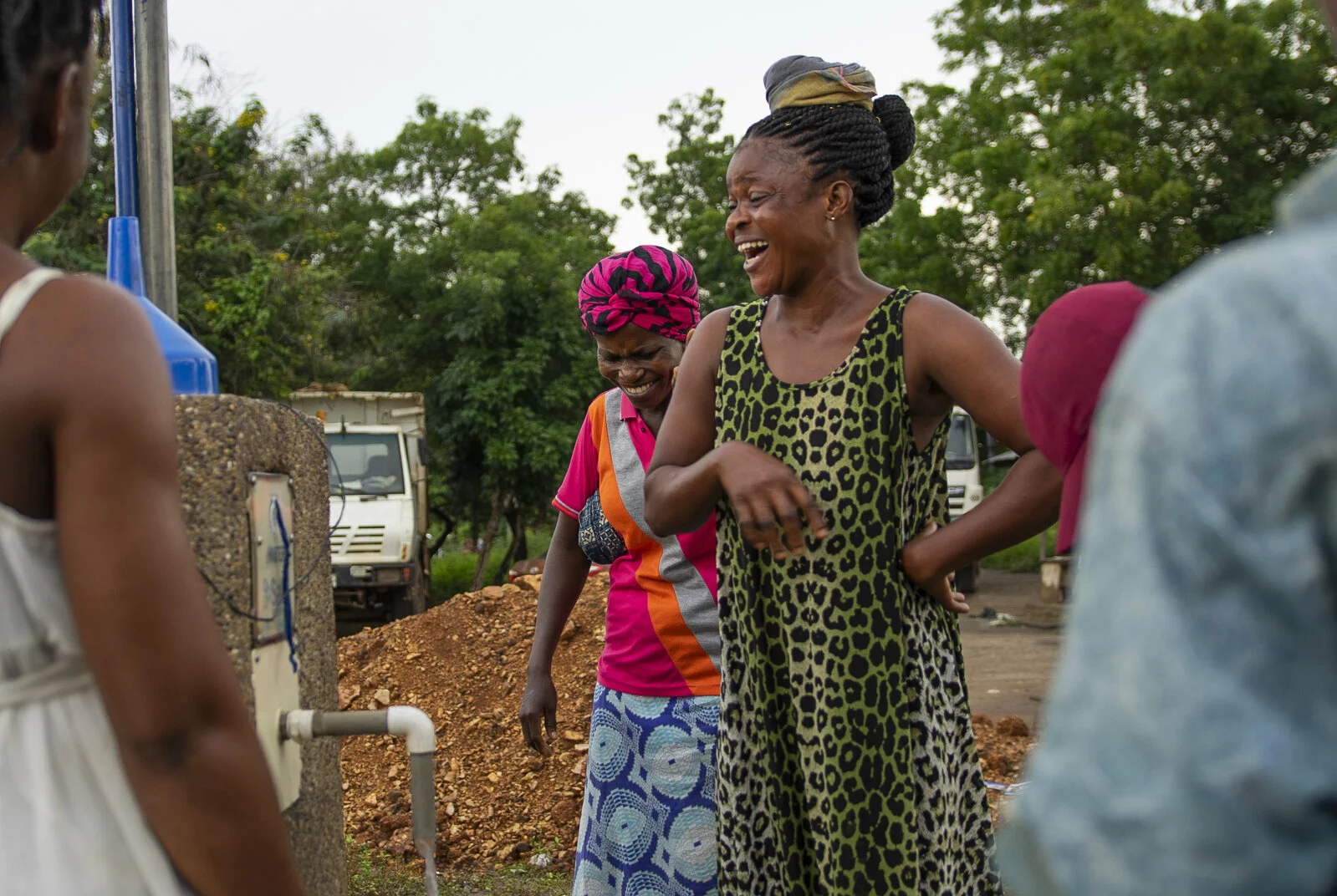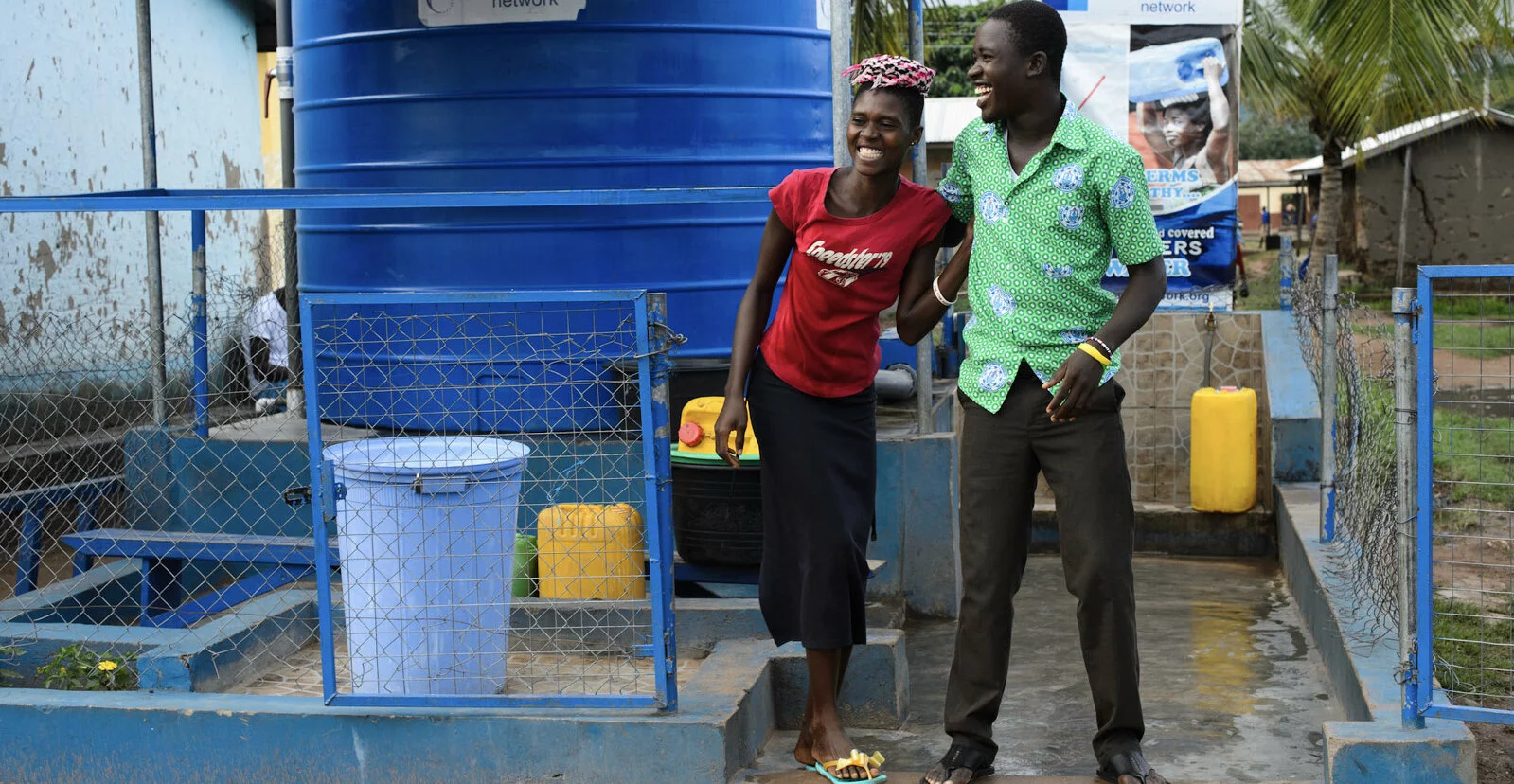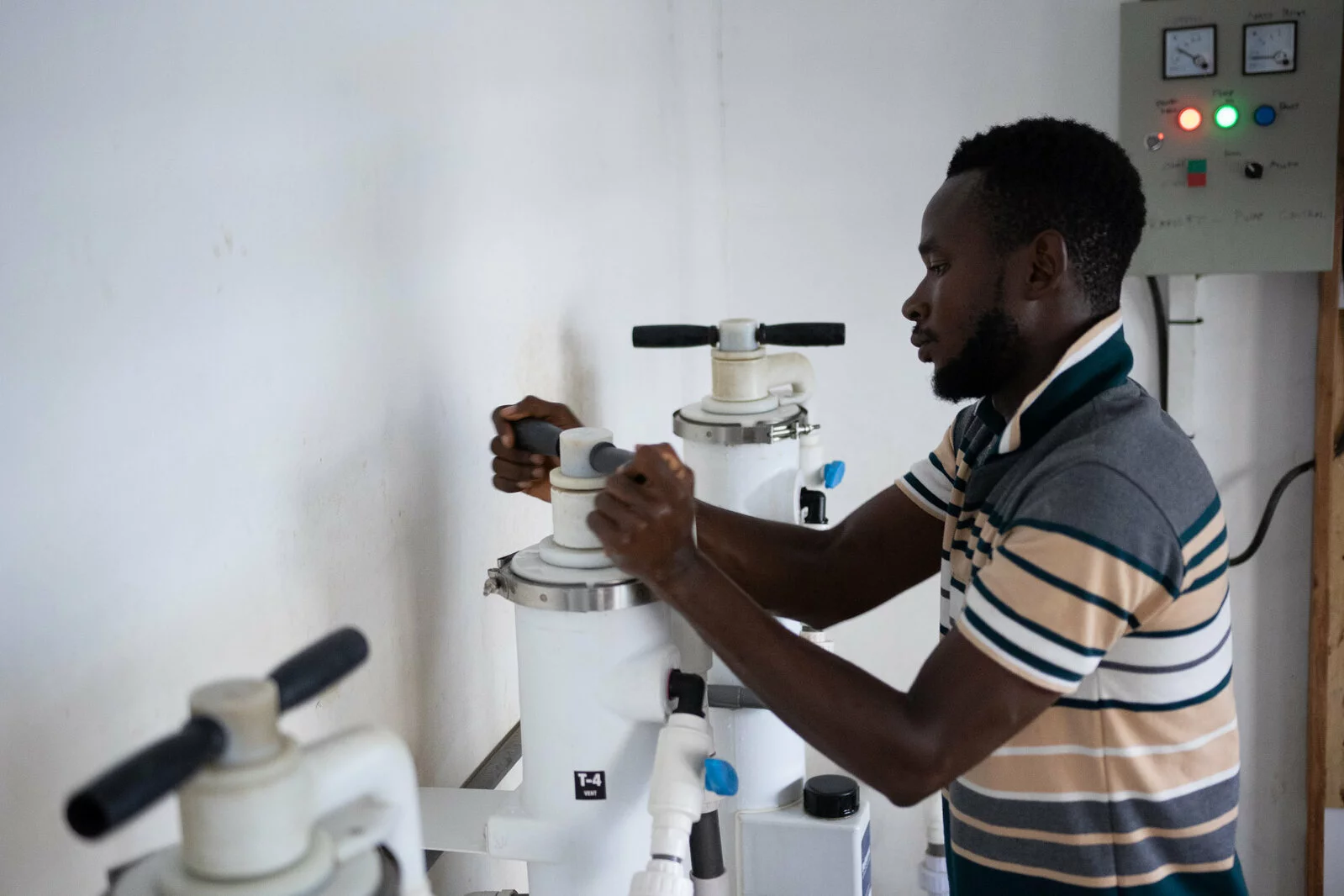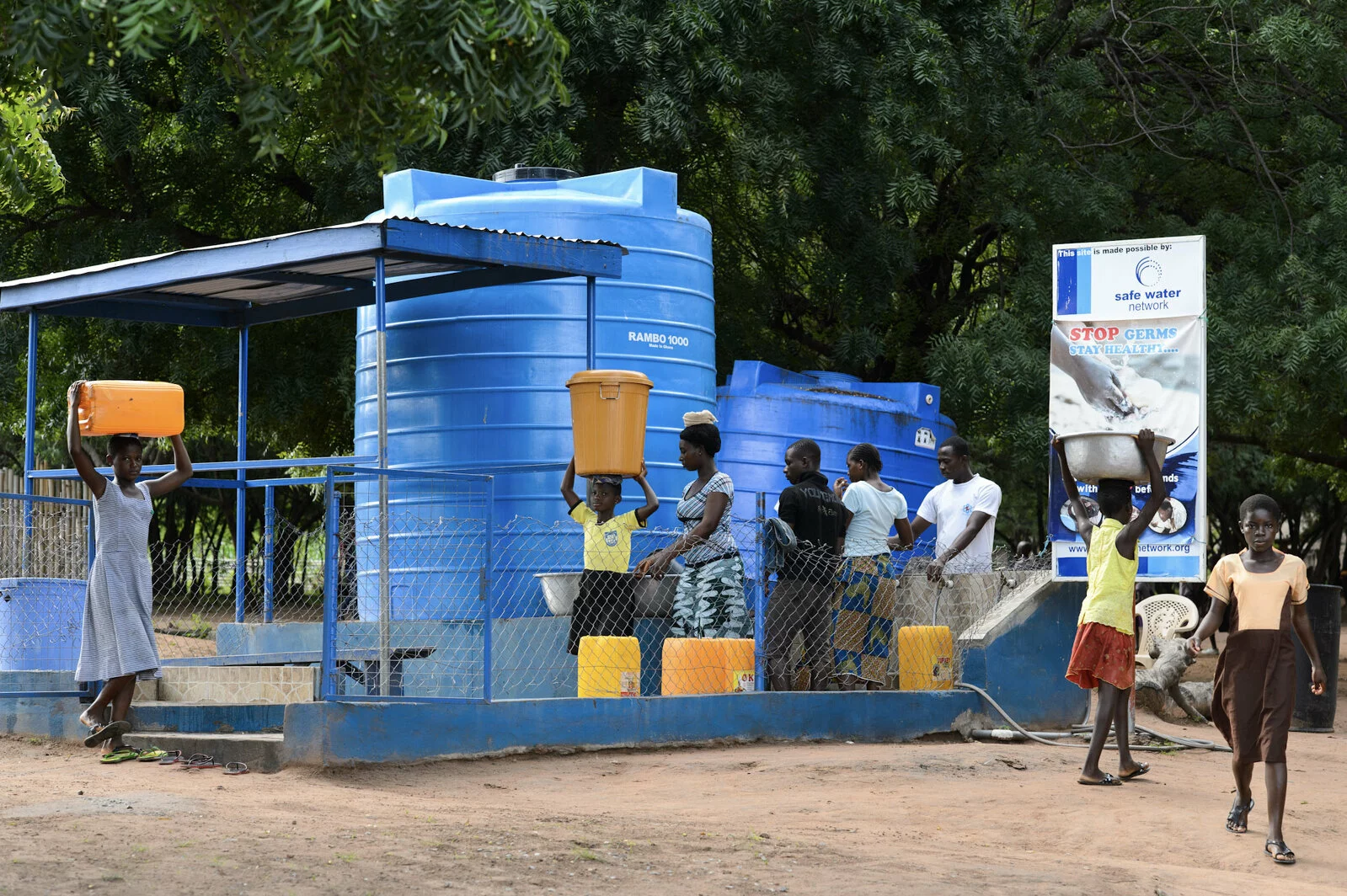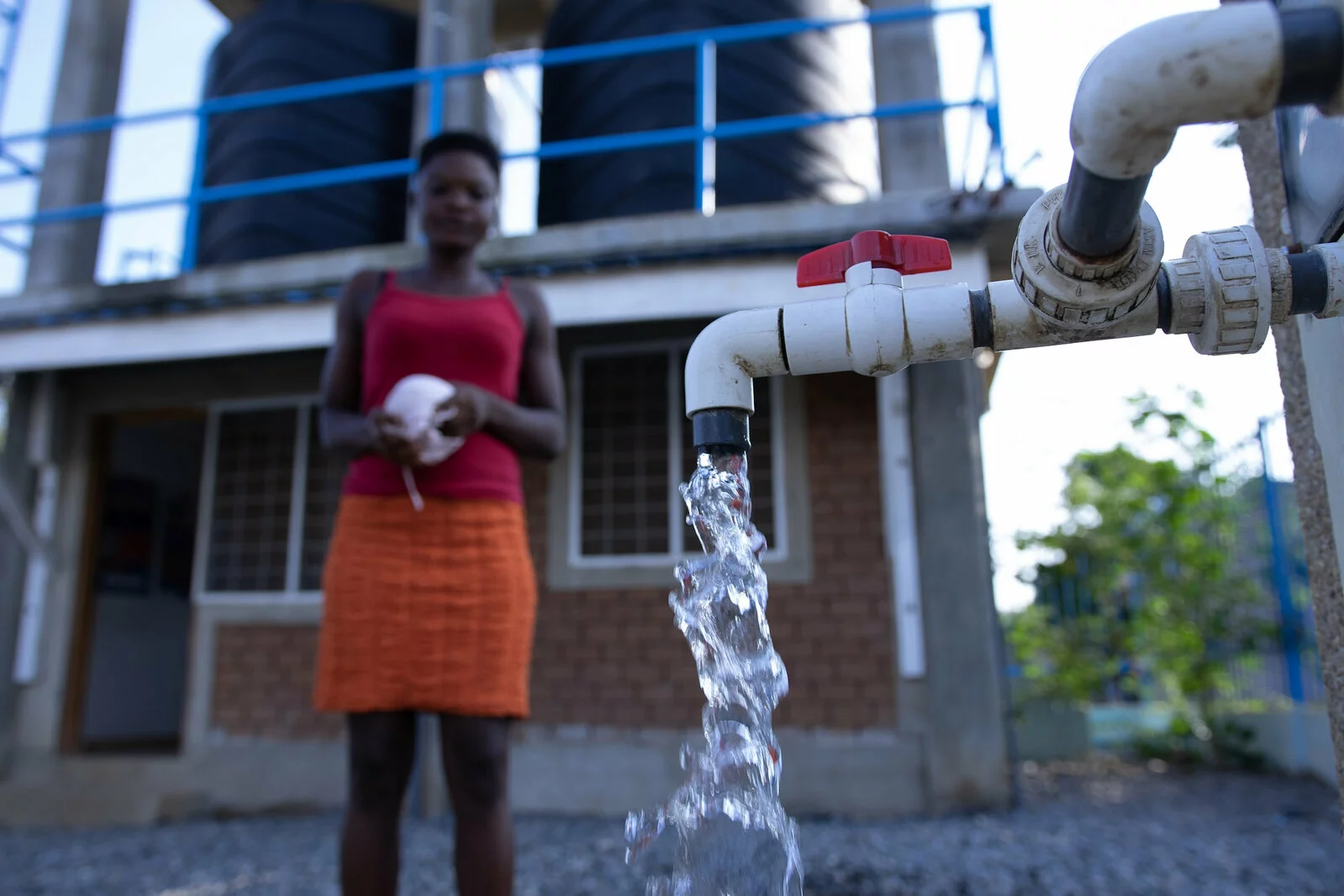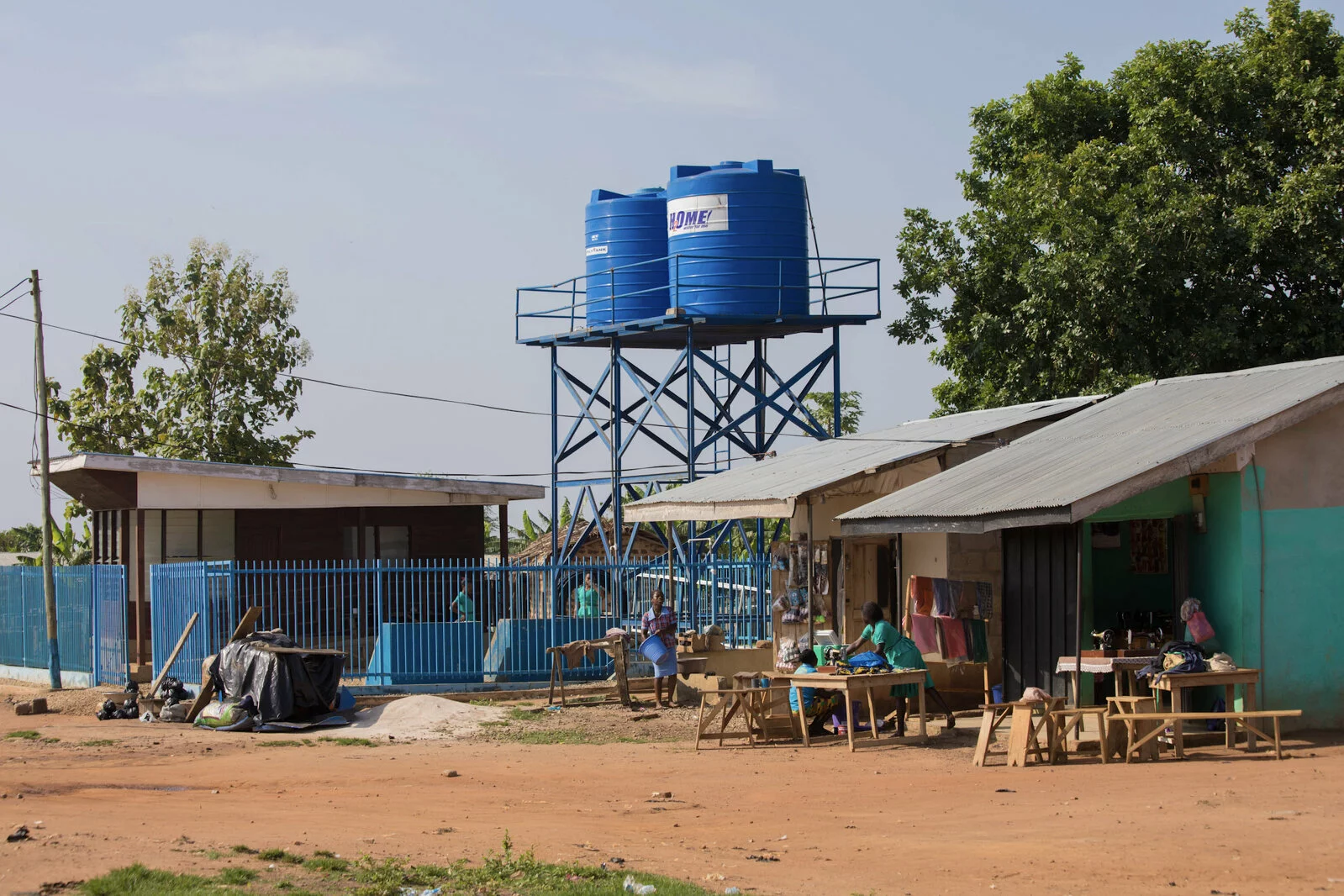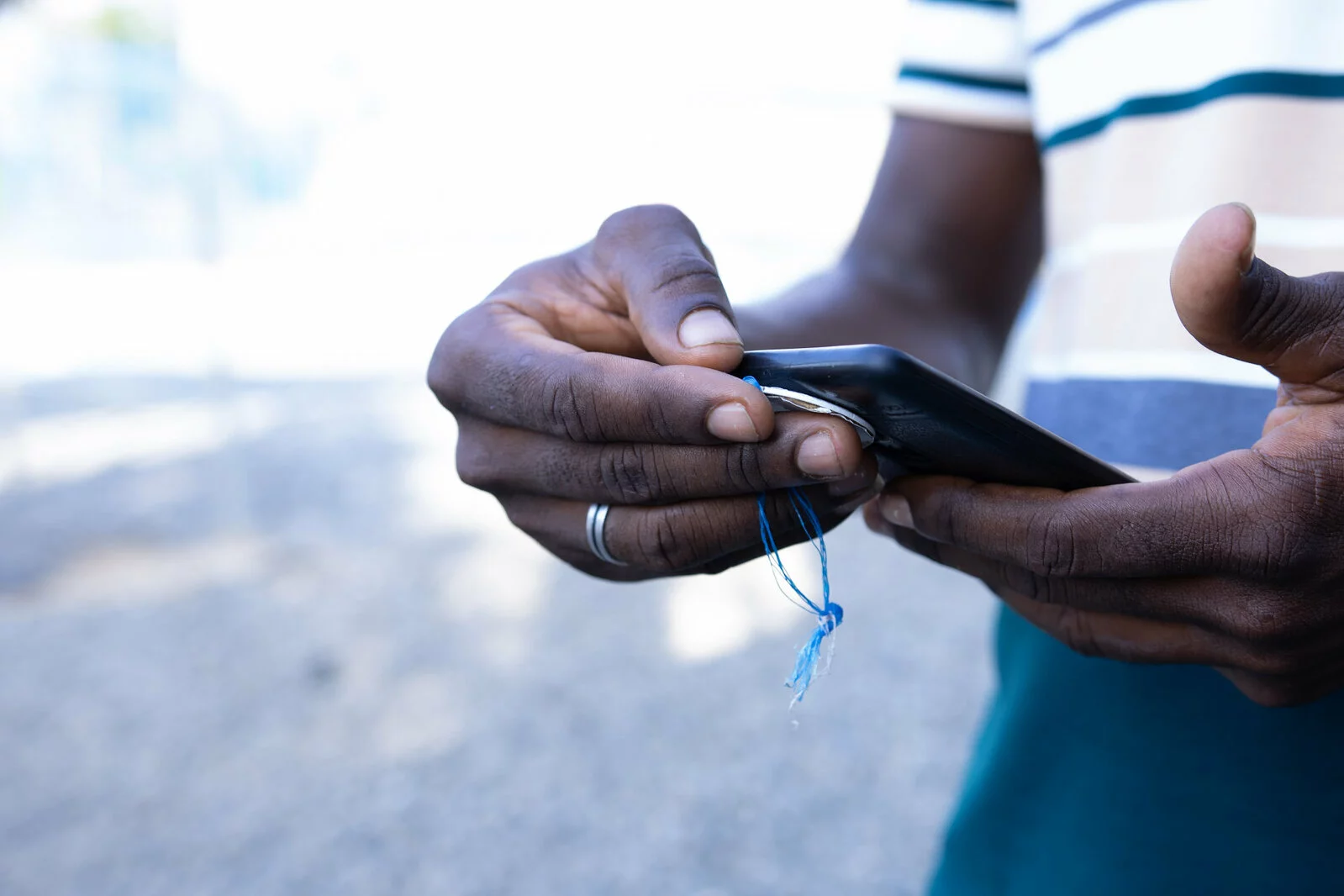Improving Station Viability with Solar
By: Safe Water Network | Joseph Ampadu-Boakye | Sandy Hwang | Kwame K.W. Asumadu | Peter Neidecker
Contributors: Akosua Afreh | Desmond Aidoo | Joseph Owusu-Ansah
During Ghana’s 2017 energy crisis, solar power offered a financially viable solution to enhance affordability and reach more consumers. Safe Water Network seeks to reduce our carbon footprint and we are investing in converting all of our H2OME! Water Stations to solar power as well as all future construction.
The Benefits of Solar power
Through a photovoltaic (PV) system, solar power generates a reliable source of electricity for water purification, and it offers a more sustainable option compared to stations operated with the electric utility grid or diesel generators. Additionally, solar power allows for off-grid communities to access safe water sources that have been unavailable due to the limitations of the electricity grid. Station viability is further improved through solar power by increasing service reliability and operational uptime.
Supporting Documentation
- Winkler, Shea C., “Small-Scale Solar Photovoltaic Investment: Payback Periods, Net Present Value, and the Impact of EPA 111(D)” (2015).
- “Ghana’s Power Crisis Intensifies.” Ghana Business & Finance, 23 Oct. 2015.
- Public Utility Regulatory Commission (PURC) and Electricity Company of Ghana
- “Average Monthly Hours of Sunshine in Accra.” World Weather & Climate Information.
